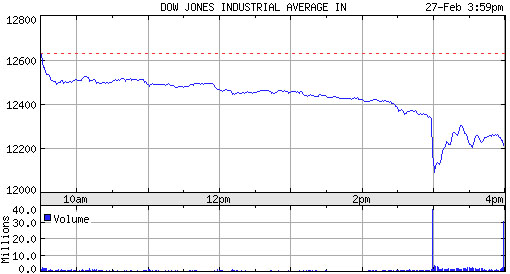The current favored information-overload coping mechanism is exemplified by Gmail: Don’t bother sorting or deleting. Storage space is cheap. Life is too short to take out the info-trash. Just let everything accumulate in one big pile and use tags and search tools to get what you need.
The “one big pile” method has the overwhelming appeal of liberating us from the role of digital janitor. (The principle lies at the heart of David Weinberger’s new book Everything is Miscellaneous — more on that soon, since I’m interviewing Weinberger for Salon.) But our opportunities to employ it remain limited. Gmail lets us treat our email as one big pile. Delicious lets us treat our bookmarks that way; Flickr, our photos.
But the biggest piles of all can be found on our hard disks. And they remain nearly impossible to treat in “big pile” mode. Google Desktop gives us an inkling, but its uses are limited. WinFS was supposed to transform the Windows file system into a Web 2.0-compliant, metadata-rich delight, but it’s vaporware. ITunes relieves us of managing our music files, but that’s just one corner of the personal-data universe.
And if it’s this bad for each of us as individuals, it’s way worse for big companies. Yesterday the Wall Street Journal featured a story by Pui-Wing Tam, titled “Cutting Files Down to Size,” about Chevron’s data-overload problem. The company’s store of office data is growing 60 percent a year; it’s got 1,250 terabytes today.
The article paints an alarmingly rich picture of the company’s problem, but is not nearly so convincing about the solution. Chevron is trying to cut back on document overload by deploying Microsoft’s SharePoint, so that instead of multiplying email attachments, all the people who use a particular document can work off a single copy. That’s just fine, but it can’t begin to be enough. With stuff that’s tagged as lower-priority, Chevron will begin deleting after 90 days. Its new plan “will require a team of 250 staffers and nearly two years.”
The Chevron exec in the article concludes by noting that “Half the battle will be changing people’s behavior.” Good luck. Asking people to do the clerical work of organizing their computer files is a losing battle. Better to try to deploy tools that help them do their work more easily — and maybe get the files organized as a side benefit along the way.
[tags]chevron, information overload, information management, data management, wall street journal[/tags]

